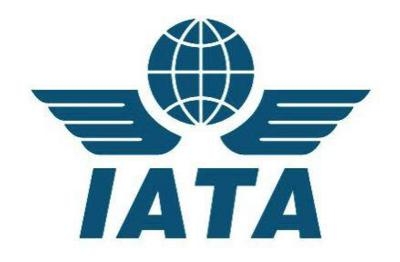Fri, Apr 08, 2016
February Down 5.6 Percent Over Same Month In 2015
The International Air Transport Association (IATA) has released data for global air freight markets showing air cargo volumes (measured in freight tonne kilometers or FTKs) suffered a 5.6% fall in February compared to February 2015. This is heavily skewed due to the impact of the US port strikes in early 2015 (which caused a spike in air freight) and Lunar New Year falling in February this year.

Comparing January and February 2016 performance to January and February 2014 reveals 6.3% volume in growth—equal to a 3.1% annualized growth trend.
“The air freight business remains a difficult one. February’s performance continues a weak trend. And there are few factors on the horizon that would see this change substantially. In the absence of an imminent resurgence of demand, the importance of improving the value proposition with modernized processes—the e-freight vision—remains a top priority,” said Tony Tyler, IATA’s Director General and CEO.
African airlines’ FTKs declined by 1.7% in February compared to February 2015. The largest economies in the region, Nigeria and South Africa, have suffered from the commodity slump over the past 18 months.
Asia-Pacific carriers, which carry almost 39% of all air freight, saw FTKs contract by 12.4% year-over-year in February. While this was the largest drop of any region, it also reflects the region’s carriers having benefited the most from the 2015 US port strike. And the region’s weak trading backdrop was exaggerated by the closure of many factories in Asia for the Lunar New Year Celebration. In February Chinese export values fell 25%.
European airlines’ demand fell by 2.4% in February. Business surveys of the region, particularly in Germany, do not give an upbeat assessment of prospects in the region. This is in line with the trend since the Global Financial Crisis: European freight volumes are barely any higher than in 2008.
Latin American carriers expanded by 2.7% in February. Markets in the region remain under pressure and Brazil is in its worst recession in 25 years. Volumes on the North-South American routes, however, are holding up.
Middle Eastern carriers were able to continue their consistent growth trend despite the statistical noise, expanding 3.7% in February. Over the past six months the major carriers in the region have cut their rate of route expansion, which may account for the relative slowdown in freight volume growth.
North American airlines saw FTKs fall 4.0% in February compared to February 2015. Looking ahead, the prospects for cargo growth will depend on the balance between a stronger domestic economy supporting import growth and a strong US dollar dampening exports.
(Source: IATA news release)
More News
Also: Vertical Flight Society, NBAA Maintenance Conference, GA Honored, AMT Scholarship For the first time, students from Embry-Riddle’s Daytona Beach, Florida, campus took t>[...]
Hazardous Weather Information Summary of significant meteorological information (SIGMET/WS), convective significant meteorological information (convective SIGMET/WST), urgent pilot>[...]
"The need for innovation at speed and scale is greater than ever. The X-62A VISTA is a crucial platform in our efforts to develop, test and integrate AI, as well as to establish AI>[...]
(FAA) Inspector Observed That Both Fuel Tanks Were Intact And That Only A Minimal Amount Of Fuel Remained In Each Analysis: According to the pilot, approximately 8 miles from the d>[...]
“Pyka’s Pelican Cargo is unlike any other UAS solution on the market for contested logistics. We assessed a number of leading capabilities and concluded that the Pelica>[...]
 Airborne-Flight Training 05.09.24: ERAU at AIAA, LIFT Diamond Buy, Epic A&P
Airborne-Flight Training 05.09.24: ERAU at AIAA, LIFT Diamond Buy, Epic A&P ANN's Daily Aero-Term (05.07.24): Hazardous Weather Information
ANN's Daily Aero-Term (05.07.24): Hazardous Weather Information Aero-News: Quote of the Day (05.07.24)
Aero-News: Quote of the Day (05.07.24) NTSB Final Report: Cessna 150
NTSB Final Report: Cessna 150 Aero-News: Quote of the Day (05.08.24)
Aero-News: Quote of the Day (05.08.24)



